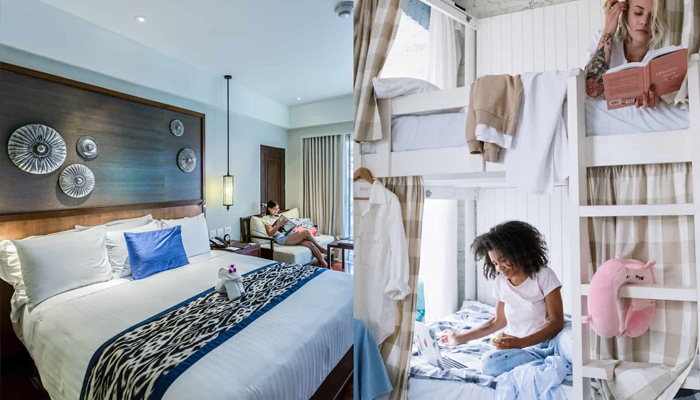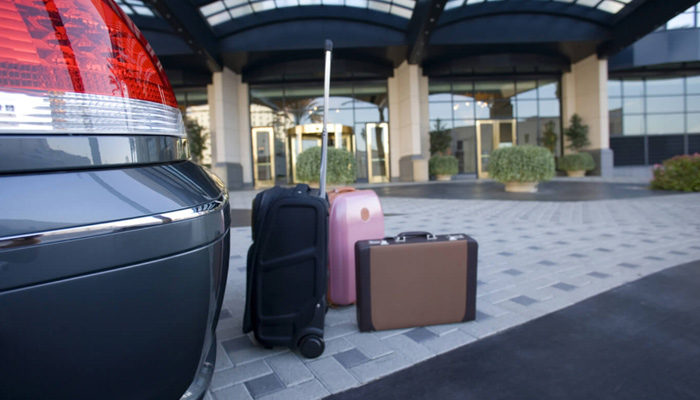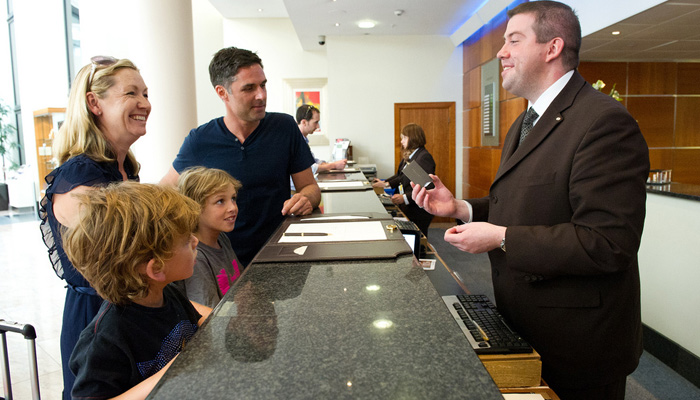
Traveling alone can be an exciting and empowering experience, but safety should always come first—especially when it comes to where you sleep at night. Choosing the right accommodation can make your trip much more enjoyable and give you peace of mind. The good news is that with a little research and planning, it’s completely possible to find safe, comfortable, and welcoming places to stay while exploring the world solo.
Research the neighborhood before booking

Before deciding on a place to stay, take some time to research the area. Even the nicest hotel or apartment won’t feel comfortable if it’s located in a neighborhood that doesn’t feel safe. Check online maps to see what’s nearby, like restaurants, shops, or public transport, which can also make your stay more convenient.
Travel forums, reviews, and even social media can give you a good sense of what the area is like. If travelers mention poor lighting, lack of transport, or unsafe surroundings, it might be a sign to look elsewhere. Trusting this kind of information will help you avoid uncomfortable surprises.
Read reviews from solo travelers
One of the best ways to understand if an accommodation is safe for solo travelers is to read reviews from people who have been in the same situation. Many booking platforms allow users to leave detailed feedback, and some even have specific filters for solo traveler reviews.
Look out for comments about the staff, security measures, and the overall vibe of the place. If multiple solo travelers report feeling safe and welcome, that’s usually a great sign that the accommodation is a good fit for you.
Check the security features
When traveling alone, the security features of your accommodation are especially important. Look for details like secure entrances, key-card access, 24-hour front desk service, or CCTV cameras. Even smaller guesthouses or hostels should have some kind of system in place to keep their guests safe.
Once you arrive, check your room to ensure the locks on doors and windows work properly. If something doesn’t feel right, don’t hesitate to ask for a different room or even switch accommodations. Your safety should always come first.
Choose well-reviewed hostels or boutique hotels

If you’re open to socializing, hostels can be a great option for solo travelers. Many hostels today offer private rooms in addition to dorms, giving you the best of both worlds—safety and opportunities to meet other travelers. Boutique hotels are another good choice since they often provide more personal service and attention.
These types of accommodations tend to attract like-minded travelers and have friendly staff who are used to hosting solo guests. This welcoming environment can add an extra layer of comfort and reassurance during your trip.
Consider staying with reputable homestay platforms
Homestay and short-term rental platforms can also be safe options, but you need to be selective. Always choose hosts with verified profiles, high ratings, and plenty of positive reviews. A good host will also communicate clearly and answer any questions before you book.
For added safety, stick to booking through the platform itself instead of arranging anything privately. This way, you’re covered by the platform’s policies and protections if something goes wrong.
Location is just as important as the property

Even if a hotel or apartment looks amazing, its location can make or break your experience. Staying in central, well-lit, and busy areas is usually safer than choosing something far from the action. Being close to public transportation, restaurants, and attractions makes it easier to get around without feeling isolated.
If you’re unsure about a location, use Google Street View to take a virtual walk around the neighborhood. This quick step can give you a real sense of the area before you commit to staying there.
Communicate with the accommodation staff

Friendly and helpful staff can make all the difference when you’re traveling solo. A hotel or hostel with approachable employees will often go out of their way to make you feel safe and comfortable. They can also provide advice about the area, recommend safe routes, or help if you encounter any issues.
Don’t be afraid to ask questions before booking, such as whether they have 24-hour reception or if late check-ins are possible. The way the staff responds can give you a good sense of how much they care about guest safety.
Trust your instincts
Sometimes, even if everything looks perfect on paper, your instincts might tell you otherwise. Maybe the neighborhood feels off, or the property doesn’t seem as advertised when you arrive. Listening to your gut can be one of the most important safety tools when traveling alone.
If something doesn’t feel right, don’t hesitate to change your plans. It’s better to spend a little extra money or time finding another place than to stay somewhere that makes you uncomfortable.
Share your accommodation details with someone you trust

Lastly, always share your accommodation information with a family member or friend back home. Give them the name, address, and contact number of the place you’re staying. If your plans change, update them right away.
This small step adds an extra layer of safety because someone always knows where you are. In case of an emergency, it’s helpful for someone to have your details on hand.
